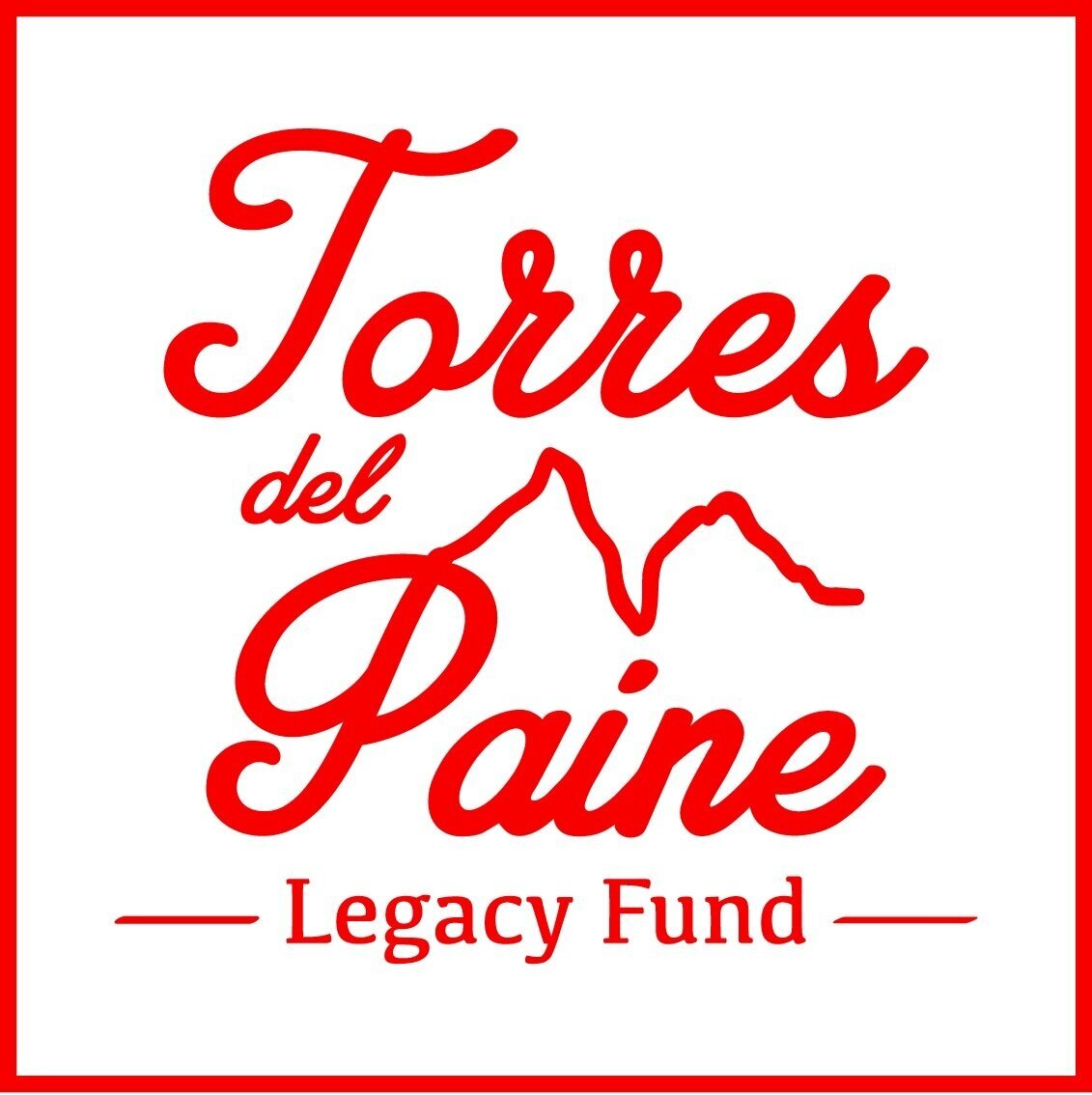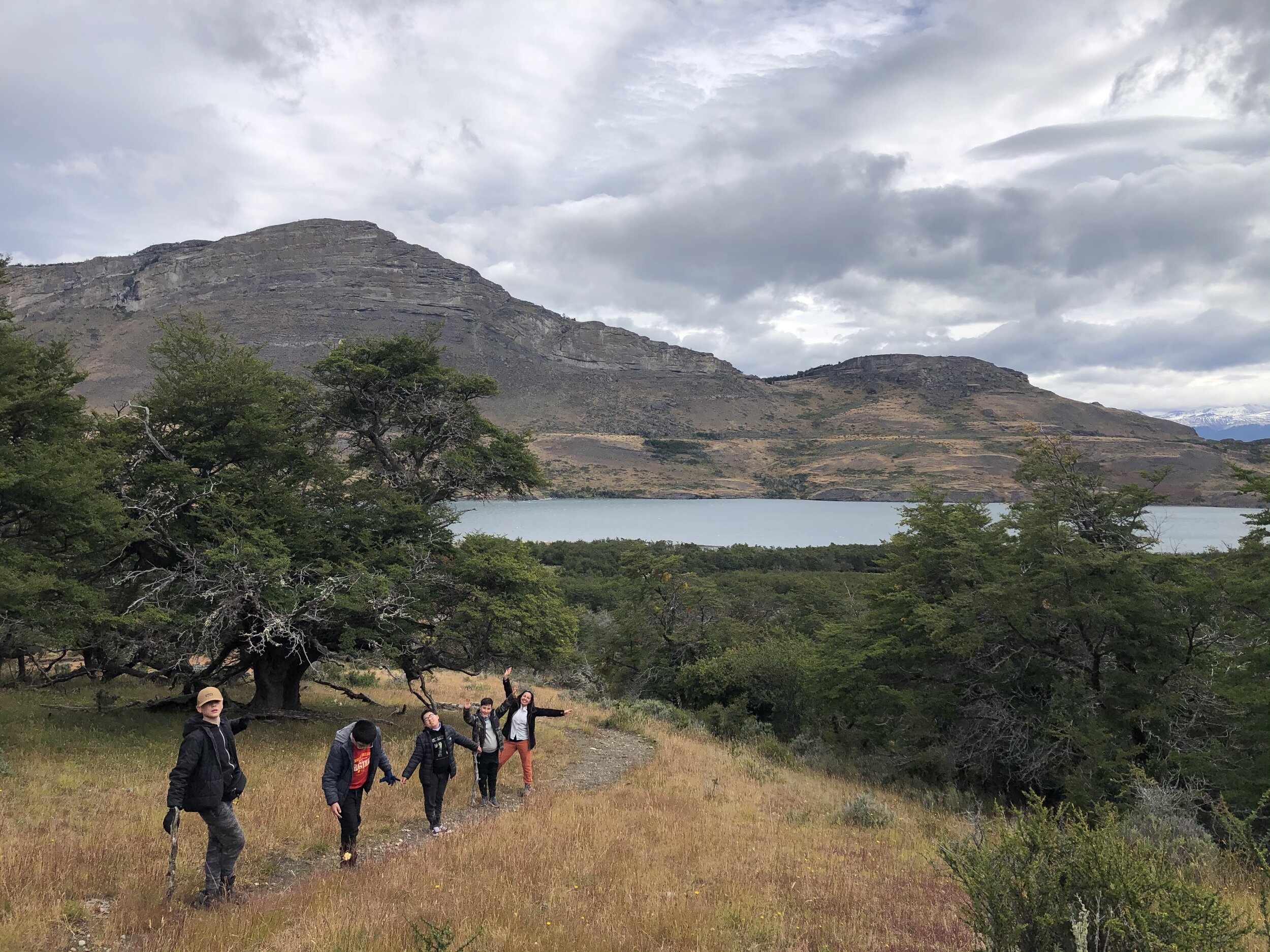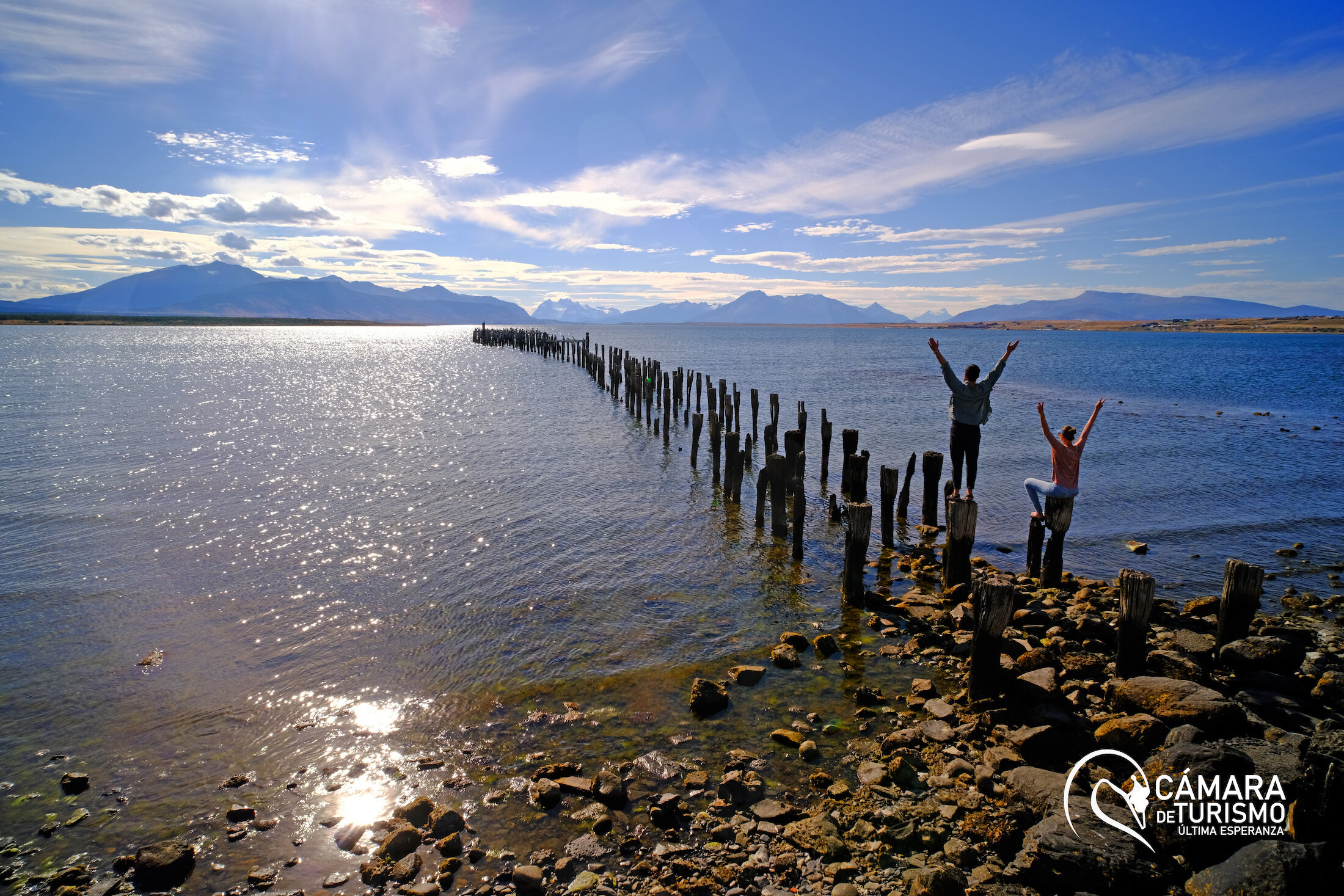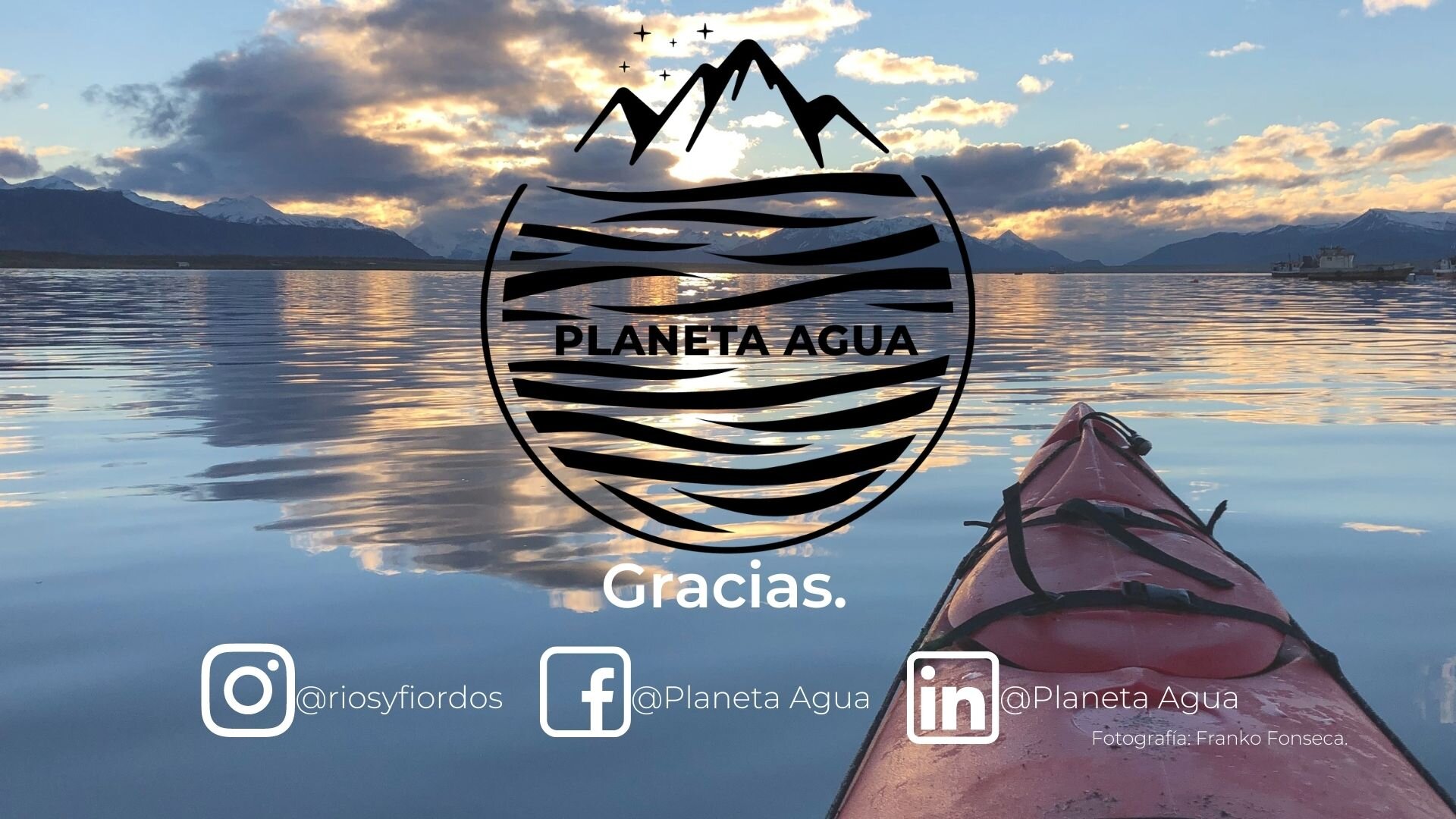
Microgrants for Sustainable Tourism
COVID-19 Reactivation Fund
Thanks to generous support from the Intrepid Foundation, the Torres del Paine Legacy Fund was able to finance 4 local initiatives with Microgrant funding to execute sustainable tourism projects.
It’s no secret that the COVID-19 pandemic brought international tourism to a screeching halt, negatively impacting thousands of global communities, including Chilean Patagonia. In an effort to overcome the negative impacts of the pandemic on the local tourism industry & support a responsible reactivation of the industry, the Legacy Fund invited interested businesses and projects from Última Esperanza to submit project proposals for funding ranging between $2.500.000 - $4.000.000 Chilean Pesos.
The Legacy Fund received tens of initial applications in the initial call for proposals period. The team then carried out an evaluation process with three external judges, resulting in the awarding of full funding to three projects & businesses ($4.000.000) and partial funding to the 4th place project ($2.200.000) -- Approximately $18,000 USD.
Grant Winners 2021
Camping in Nature
Camping in Nature, a project carried out by Day Zero Patagonia Outfitters, seeks to offer outdoor education opportunities to local youth byway of a participatory and playful methodology that promotes a special emphasis on caring for the environment. While in the field, local you will learn skills & techniques based on 3 principal themes:
Environmental education
Outdoor survival and backcountry techniques
Value dimensions of culture and social skills.
The content & methods used to carry-out this project include technical practices in camping & wilderness living, geographic orientation, knots, Leave no Trace, native flora & fauna, constellations, challenge & skill games, hiking, & more!
Gastronomy Event of Puerto Natales & Torres del Paine
The local Tourism Chamber of Última Esperanza seeks to hold an event called “The Gastronomy of Puerto Natales & Torres del Paine”, which hopes to demonstrate the value of the local culinary offer. The project will share industry innovations that have occurred as a result of the pandemic and promote the natural & cultural resources associated with regional cuisine. The event will also showcase young local talent and strengthen the overall culinary offering in the destination, demonstrating that Patagonia’s rich regional gastronomy provides a perfect complement to tourism activities.
Activities include a culinary competition where participants from the sector will present dishes in front of a prestigious panel of judges. Training days for young, local talent in the food & beverage sector will also be provided. Covered by local, national, & international media, the event will be a perfect kickstart for the sector, which will be welcoming tourists to the region for the upcoming season.
Estancia Mercedes
Estancia Mercedes seeks to create a new, post-pandemic tourism concept called Conscientious Tourism. The family-owned tourism product seeks to promote human encounters that connect the inner-self with the present moment through immersive outdoor experiences. By connecting with people & nature, they hope to change the way we look at each other. A focus on empathy and healing will be connected to traditional nature experiences like walking through a forest, or caressing and riding a horse.
While the pandemic created much physical harm and illness, it also highlighted other forms of human fragi humanity the most was the marked fragility of our nature, we need it to be in emotional and physical balance, the confinement has triggered the largest depression crisis in the world, surpassing the cancer in deaths. That is why we have decided to create a place to inspire this type of tourism. And how will we do it in this project? Changing our perception of the forest through the use of magnifying glasses that adapt to the cell phone, to recognize and experience it and returning ancestral wisdom to people through the cultivation of food without chemicals when interacting in a garden.
Planet Water: Between Rivers & Fiords
Planet Water: Between Rivers & Fiords seeks to generate a co-creative community space that raises awareness on local, ancestral, and scientific knowledge of Patagonia’s water systems: rivers, fiords, and ocean. Community members from all over the Magallanes region will be openly invited to participate in an interactive and sensory exhibition in Puerto Natales.
The project hopes to complement the memorable experience and education opportunities for attendees with professional development and capacity-building opportunities for students from high schools and biology students from regional universities. These students, many of whom had they learning processes interrupted during the pandemic, will act as the official guides for the exhibition. They will be trained to improve many soft skills and communicate skills, while also learning to communicate knowledge and stories surrounding museographic elements provided by Kawésqar women artisans. Planet water: between rivers and fjords, supports the strengthening of a sustainable reactivation for the tourism industry and the ecoregion of Patagonia.
MICROGRANTS EVALUATORS
-
Germaynee Vela-Ruiz
Germaynee is an environmental engineer, with an Erasmus Mundus Masters degree in Management of Waters and Coasts. She is an associate member of the Society of Tourism Researchers of Chile (SOCIETUR) and is currently the Portal Communities Strategy Coordinator for the protected areas of Chilean Patagonia. Her work seeks to strengthen the link between communities and protected areas in 26 different municipalities in Patagonia.
Germaynee has also held various scientific research positions related to territorial planning in the region. She has 16 years of experience working on projects that include the management of protected areas, the management of tourism in protected areas, biodiversity conservation, participatory management of natural resources, territorial planning, science education, and rural development.
She has worked in the Magallanes and Chilean Antarctic Region for 13 years, leading interdisciplinary teams consisting of public and private actors, especially in Torres del Paine National Park.
-

Silvia Benitez
Silvia currently works as Freshwater Manager for The Nature Conservancy (TNC) in Latin America. She has spent more than 20 years working in biodiversity conservation and natural resource management, with a special emphasis on water resources. She joined TNC in 2001 to work on conservation planning, natural resource management, nature-based solutions, and financial sustainability for conservation. Initially, she began working for the TNC Program in Ecuador, but later expanded her role to work throughout the Latin America region. She comes to us with extensive experience working collaboratively with different key actors, including local communities, governments, national and international organizations, the private sector, and academia.
Silvia studied Environmental Sciences at the Universidad San Francisco de Quito, and holds a master’s in environmental management from Yale University. She actively participates in various women's groups that promote gender equality, diversity and inclusion, and is the founder of “Mujeres por el Agua”, a group of women from Ecuador that promotes the restoration of its rivers.
-

María José Orellana
María José leads the biotic area of environmental unit for the Council of Atacameño People – part of the indigenous people’s development in Atacama la Grande. In her career, she has worked as an environmental analyst and consultant for indigenous communities, evaluating the environmental impact of large lithium extraction and metal mining companies.
María José’s professional interests are conservation, environmental management, education, and community participation. She has served as project manager for environmental monitoring projects, where she has worked within the framework of the Open Standards for Conservation, integrating the Internet of Things and community participation.
She holds a Magister degree and is a Doctoral candidate (c) in Biological Sciences with an Ecology focus, and has her Bachelor of Biological Sciences from the Pontificia Universidad Católica. During her academic career she has taught various courses in her specialty, promoting new tools and learning dynamics in Chile. She has worked on research related to ecological physiology with a specific focus on the effects of climate change on organisms and natural populations.
AN OPEN APPLICATION PROCESS
The Torres del Paine Legacy Fund did not participate in the evaluation of applications. A team of three judges from the tourism, conservation, and community development sectors in Latin America evaluated projects via a multi-step process that included evaluation of eligibility criteria, project impact, and video conference interviews.
Thank you to the Intrepid Foundation!
This project was supported by the Intrepid Foundation, one of our committed and generous partners. With their support, we hope to continue making positive impacts for the tourism industry in the Magallanes region for many years to come.






